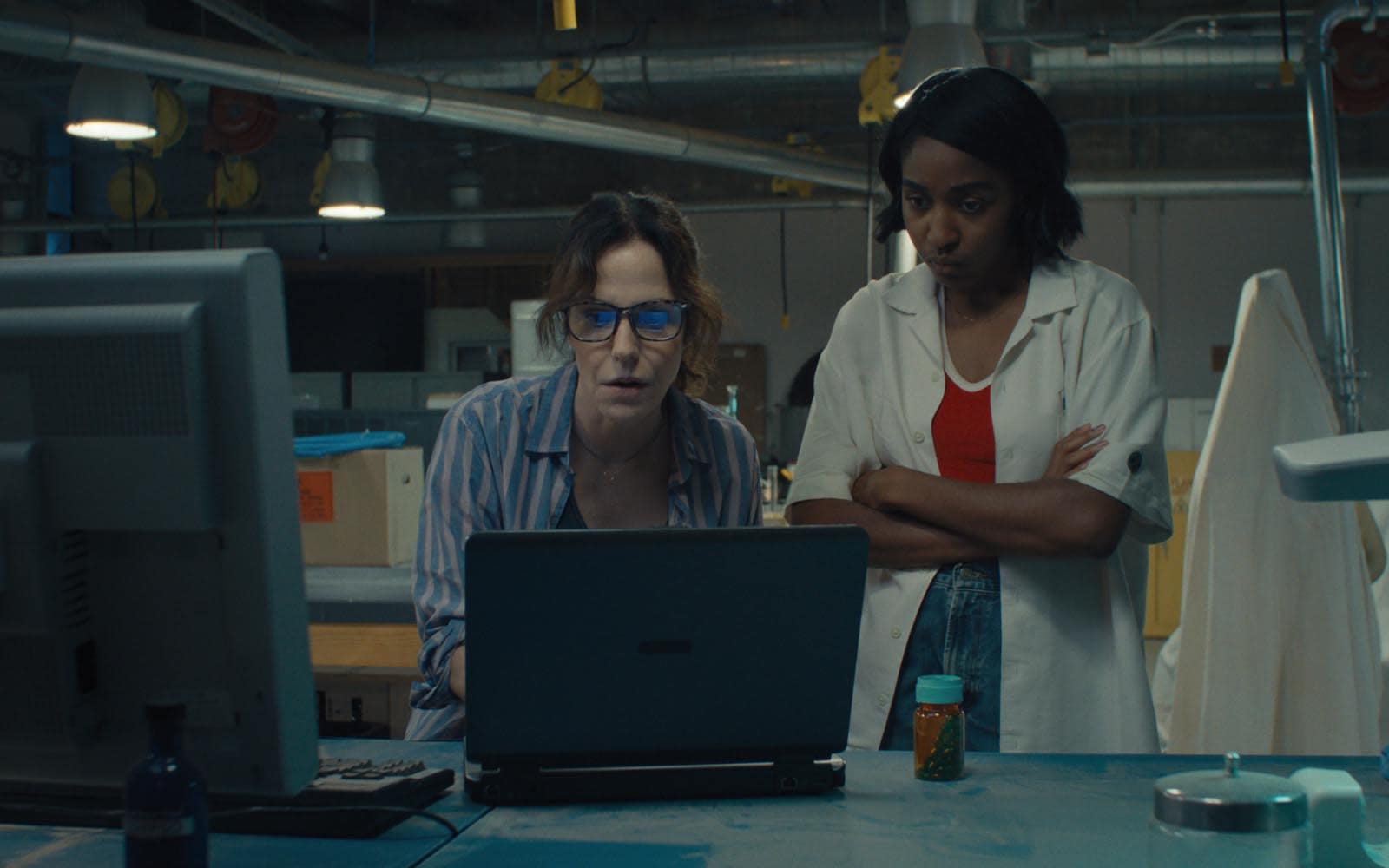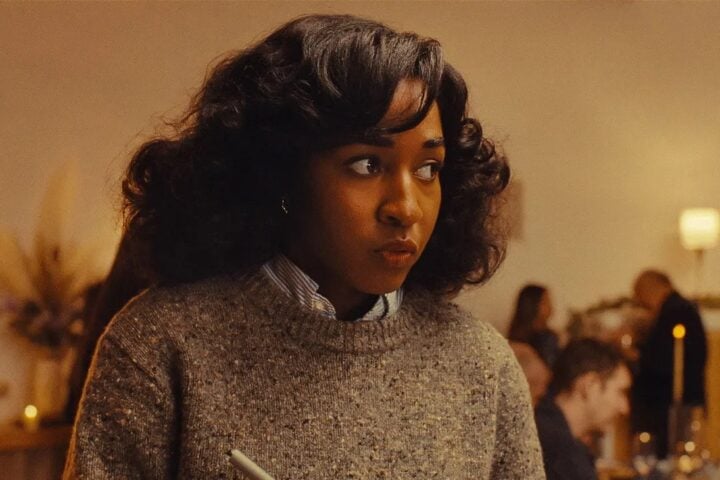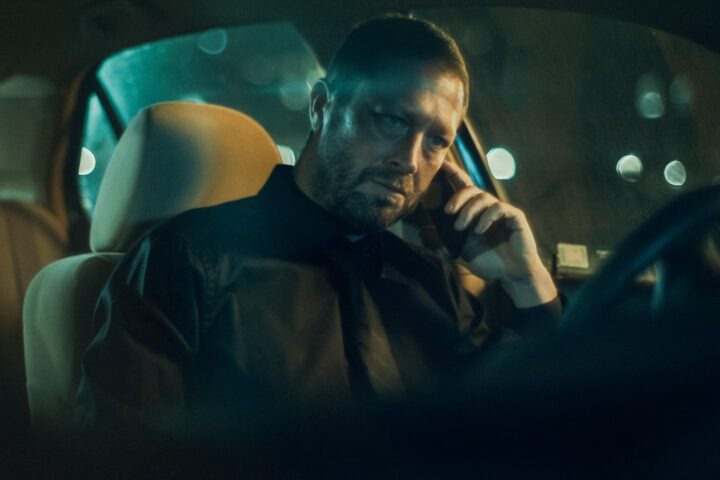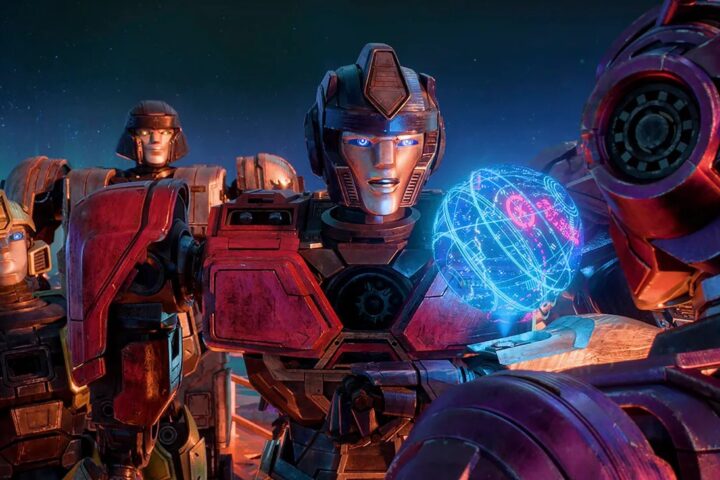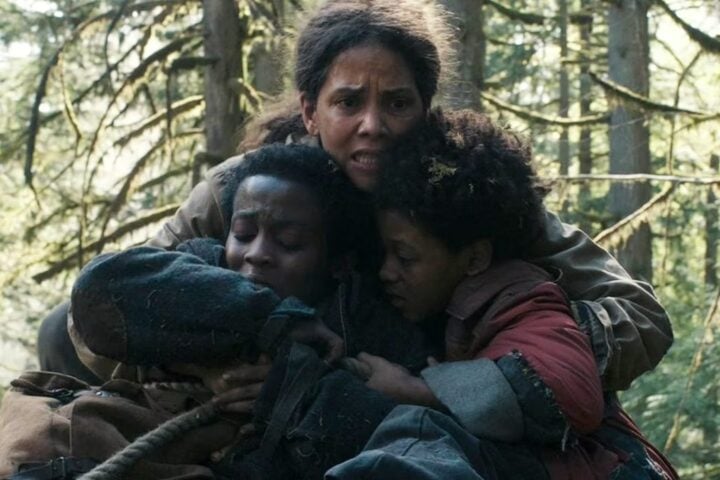When doctors tell Zoya Lowe (Mary-Louise Parker), the quantum physicist at the center of Omni Loop, that she has a black hole growing inside her chest and little time left to live, she seems oddly unfazed. A montage speeds us through the next few days of her life as she’s taken home from the hospital, then to the beach by her family, who surprise her with a candle-covered cake two weeks ahead of her actual birthday, which she likely won’t live to see.
Throughout each of those scenes, Zoya sits in the center of the frame, staring forward with a placid look on her face. It would be fair to assume that hers is a state of shock—the look of a woman who’s unable to process the finality, maybe even the absurdity, of her diagnosis. In truth, though, Zoya seems so unmoved because she’s seen all of this before.
Bernardo Britto’s sci-fi drama makes clever use of the audience’s familiarity with the general shape of time-loop stories to accelerate the opening part of its tale. As soon as Zoya explains that she’s been living the last five days of her life—which will indeed be the last five days of her life—over and over again, everything immediately clicks into place for us. More specifically, we understand why she’s able to predict seemingly random events with perfect accuracy, and we understand why she suddenly looks so horrified one day, midway through an idle conversation that she’s already had countless times before, with Parker’s pained expression silently selling the absolute agony of a woman trapped between death and infinite repetition.
To try and find a way out of this torturous loop, Zoya enlists the help of a young physics student, Paula (Ayo Edebiri), from a local community college. Of course, Zoya has to re-convince Paula to help her every five days when the loop begins again and all memory of the work they’ve done together is erased from her brain. Here, again, Omni Loop uses time-loop tropes as a catalyst to push us through the early stages of the plot at an increased speed. It rapidly clips through a montage of Zoya figuring out ways to prove to Paula that she really is a time-traveler of sorts, trusting us to keep pace with the chain of events because, like Zoya, we’ve seen it all before. It’s clever, confident storytelling that clears away the need for excessive exposition.
But as Zoya and Paula’s progress in the lab stalls, so does Omni Loop. Parker and Edebiri initially make for a compelling pair, in part because they’re both such mannered, idiosyncratic performers. As proven by her work on The Bear, Edebiri is perfectly cast as a character who visibly strains to remain calm and polite while increasingly insane things are asked of her. But the general sense of entropy that plagues the film’s second half begins to also drain away at the central performances. With no real arc to play, Edebiri especially retreats into her comfort zone, delivering every line in that stuttering, staccato fashion that’s usually so endearing but here becomes a little grating through sheer repetition.
As the film proceeds, the story moves away from Zoya’s quest to escape her fate and into a more personal exploration of the path through life that she has chosen and the other choices she might have made if she could wind the clock back all the way and do it over. But the ideas that Omni Loop explores are the same as those found in almost all time-loop stories, and the film retreads them without offering anything significantly new. In the end, it feels like we’ve watched a promising film disappear into itself, just like Parker’s black hole-stricken protagonist.
Since 2001, we've brought you uncompromising, candid takes on the world of film, music, television, video games, theater, and more. Independently owned and operated publications like Slant have been hit hard in recent years, but we’re committed to keeping our content free and accessible—meaning no paywalls or fees.
If you like what we do, please consider subscribing to our Patreon or making a donation.

